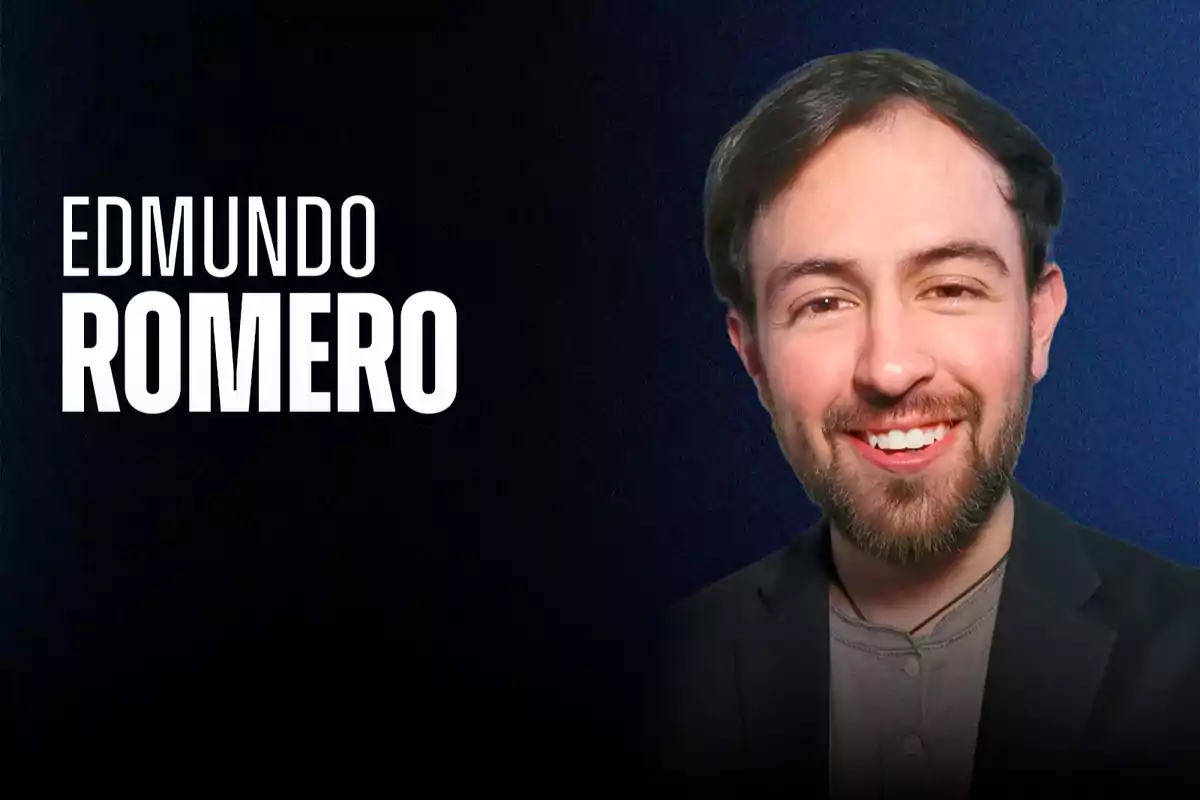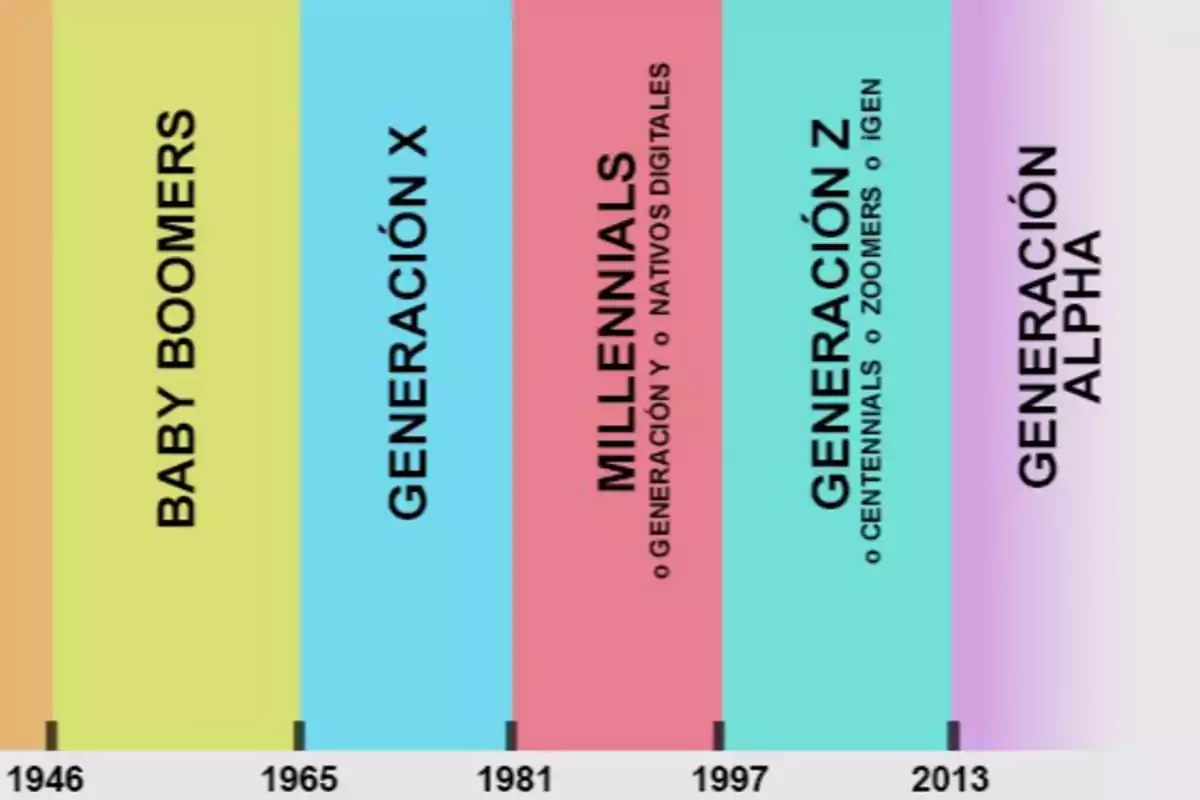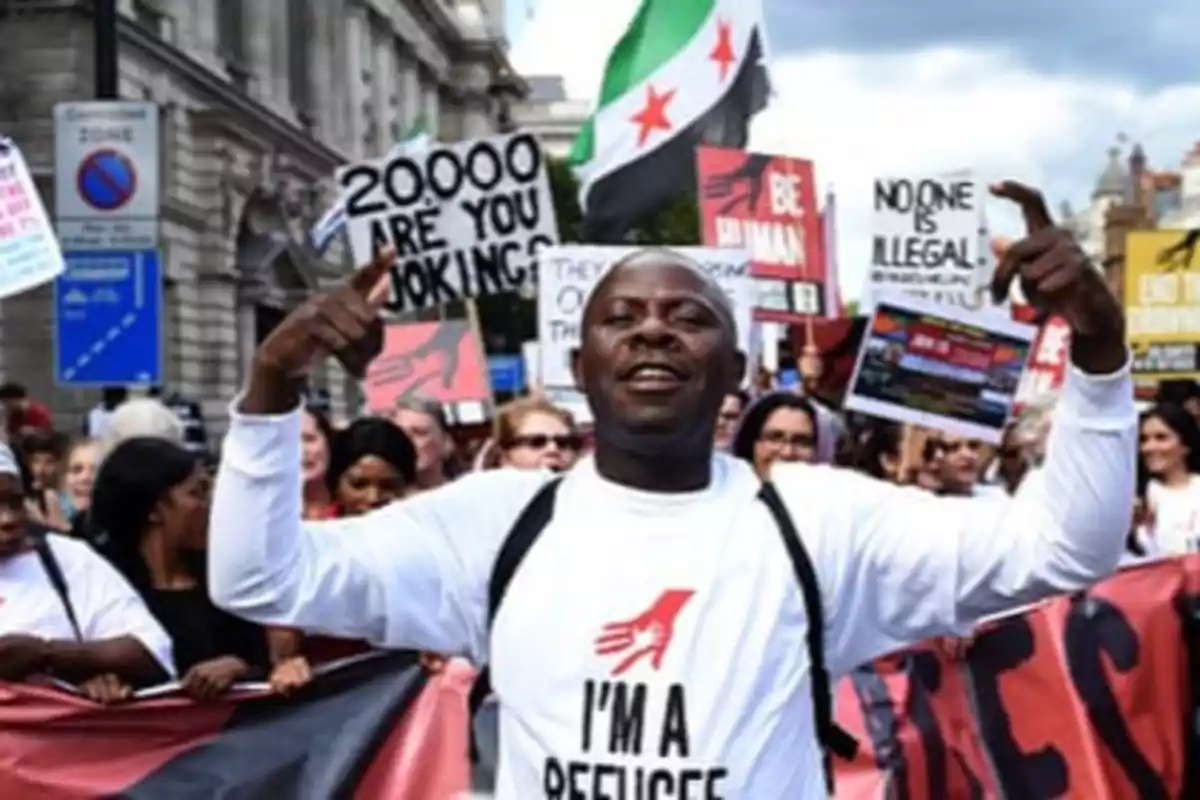
The Conservative Awakening of Young People and the Rebellion Against Cultural Marxism
The generation that didn't accept being told what to do, what not to say, how to act, and how to feel—is there still hope?
In a conversation with my father and grandfather about politics, the question has arisen which is the most left-wing generation? or which is the most conservative? The question is interesting because to give the answer, one must consider the historical context of each of them.
Generations are divided more or less as in the following chart:

Sometimes the data in the charts vary slightly in years, but in the order and names of the generations there is already a general consensus.
My grandfather is from the "baby boomers" he was born in 1944. My father is from Generation X, born in 1965. I am from Generation Z, born in 1997 and my values align more with the conservative and libertarian right.
My opinion may be controversial, but I am convinced that, among these 3 generations, Generation Z is the most conservative. However, allow me to explain why I reached this conclusion by showing data, examples, and concluding with a message of hope.
What is Generation Z like? What defines it?
Generation Z is, more than the future, the present and the youngest generation to enter the workforce. This generation is rebelling against the benevolent and cultural Marxist system that had been the youth ideological trend of the last 50 years.
Generation Z is composed of young people between 15 and 29 years old. These young people, both men and women, are showing a political inclination to the right, even surpassing their parents in conservatism. (as is my case)

The change is very visible indeed. Reliable surveys in the US, for example, have shown that the youngest born from 1995 onwards have right-wing tendencies. They believe in meritocracy, hard work, honor God, protect the traditional family, and think about having their own.
This is also evidenced in studies conducted in Europe and Spain, where parties like Vox lead youth preferences, just like AfD in Germany. It is also visible in Latin American countries like Argentina with Javier Milei or El Salvador with Nayib Bukele.
This behavior represents a break with the progressive trends that dominated previous decades.
But, what has caused this radical change? That is, for many years young people had socialist and progressive tendencies, what changed? Let's see.
Why does Generation Z reject progressivism and embrace tradition?
This shift is no coincidence. Young people perceive that progressive elites have imposed a "program" that dictates how they should think, act, and feel. Each of us reading this remembers a situation, whether in the news or in personal experience, where children are forbidden to be children.
In the particular case of boys, they are not taught to be competitive or to control their emotions, but to be meek and suppress "negative" feelings in social consensus.
Topics like radical feminism, gender ideology, and the climate agenda are presented as unquestionable ideas. Simply questioning these ideas results in an uncomfortable discussion or labels like "fascist" or "tyrant".
This, naturally and very interestingly, generates a reaction of resistance among those seeking freedom of thought.
The left, in its eagerness to redefine society, has underestimated traditional values of masculinity. Such as the role of the man as provider and defender, but also that of the woman as an essential pillar of the family.
This deconstruction has left many young people, especially heterosexual males, feeling abandoned and without a clear model of identity.

Right-wing figures win the battle for influence on social media.
Quoting political scientist Agustín Laje, social media levels the fight for information and attention in the cultural battle. For a long time, the only way to get informed was through the manipulable traditional media. However, the growing influence of social media has allowed alternative discourses to gain ground.
Platforms like TikTok, X, or YouTube have become spaces where the dominant narrative is questioned. On social media, conservative leaders connect with a youth tired of the negative narrative and in search of opportunities.

Figures like Andrew Tate, Agustín Laje, Javier Milei, Donald Trump, and Nayib Bukele have gained popularity among young people for their defense of traditional values and their criticism of the progressive establishment.
What do these figures have in common? They have used social media to spread their messages and connect with an audience. An audience that feels marginalized by the dominant discourse.
In Mexico, figures like Eduardo Verástegui and media like Derecha Diario are giving the cultural battle, promoting a conservative agenda and defending traditional values.
These actors seek to counteract the influence of cultural Marxism and offer an alternative to the dominant progressive narrative.

What other factors are driving youth to the capitalist right?
This conservative awakening is also fueled by economic concerns. Job uncertainty, difficulty accessing housing, and rising inflation have caused discontent among young people, who are seeking solutions outside the traditional political spectrum.
In this context, cultural Marxism, with its focus on class struggle and the deconstruction of social structures is a threat to stability and order. Young people are rejecting an ideology that, instead of uniting, divides; that, instead of building, destroys.
In Europe, open border policies have led to an increase in crime and assaults on women, generating concern among the population. Many men, and also women, do not want to see their countries succumb to insecurity and the loss of traditional values.

There is hope
Generation Z is not lost, but is seeking a path that provides meaning, purpose, and belonging. The resurgence of conservative values among young people is a sign of hope. We must see this resurgence as an opportunity to rebuild a society based on solid and lasting principles.
The revolution proposed by the woke and socialist left failed, people rejected it. Society itself is beginning to recognize that in tradition lies the future of humanity.
More posts: